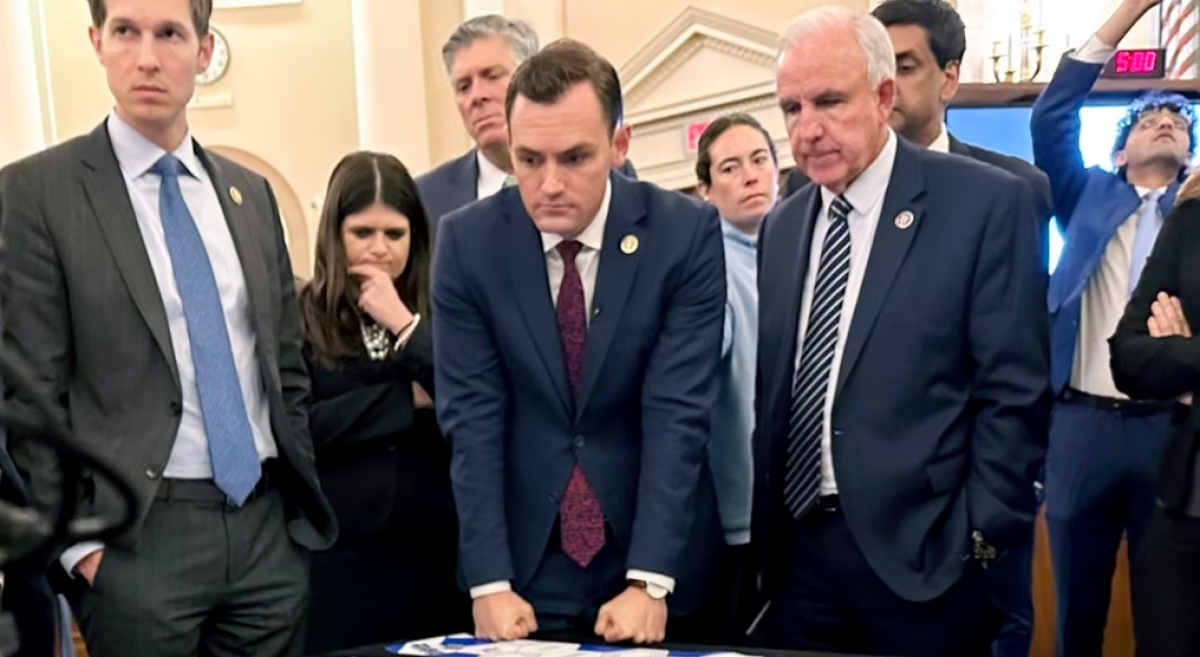Chairman Gallagher's Remarks During a Wargame Exercise on a Potential Future CCP Invasion of Taiwan in Washington, D.C.

Click HERE for full remarks.
-
We’re here tonight for a wargame – that term is handy, military shorthand, but we need to be clear: tonight is not about a desire for war, and tonight is not about playing frivolous games.
We seek peace and stability in the Taiwan Strait – and the continuation of a relationship that has enabled both Taiwan and China to grow their economies and integrate their societies with the world through high-tech commerce.
Only Beijing seeks to upend this peaceful situation, and provoke conflict.
Xi Jinping is not shy about sharing his intentions to take Taiwan, through political warfare if possible, through actual warfare if necessary.
The People’s Liberation Army has been preparing for a Taiwan invasion for decades – the PLA rocket force and PLA Navy are purpose-built for cross-strait battle and for denying regional access to Taiwan’s friends.
We’re going to explore what happens in the very grim scenario in which deterrence fails in the Indo-Pacific.
This is not a possibility we wish to contemplate, but one we must. We recognize the paradox of deterrence – that to achieve peace, sometimes you must prepare for conflict. I know the members of this Committee will dig into the lessons we can learn from what may be some sobering outcomes of this game.
Wargames aren’t just about war—they can be used to strategize on trade policy, cyber defense and many other issues in Congress’ remit.
Too often, Congress considers only first-order consequences of its policies, but, as a popular military saying goes, “the enemy gets a vote.” What happens when our strategy makes contact with our competitor’s?
For a successful wargame, you need the imagination to put yourself inside your opponent’s head and understand their strategic objectives, why they hold them, the costs they are willing to bear to achieve them, and BOTH their best and most likely strategies, which may not be the same. Wargames help crystallize what, when the fighting actually starts, makes the biggest difference.
I want to thank CNAS for partnering with us tonight to design the game, and also thank Ranking Member Krishnamoorthi for the excellent idea to add an economic component, to help illustrate the problem to corporate America.
The business community is not taking the threat of a Taiwan crisis seriously enough. I recently had a meeting with an executive from a leading financial services company who told me that the chance of a Taiwan conflict was “near-zero”.
Given the bipartisan consensus around the rising risks in the Taiwan Strait, this dangerous view verges on dereliction of fiduciary duty. Because if the Chinese do invade Taiwan, any business or investor that is overly-dependent on the Chinese market, including both suppliers and customers located there, will suffer. We want American businesses to deal with these risks responsibly, not stick their heads in the sand.
We’re opening parts of this UNCLASSIFIED wargame up to an audience because we’d like viewers to see how seriously Congress is taking the possibility of conflict, how diligently we’re working to deter it, how much work there is still to do on this, and how committed we are to preserving the peace.